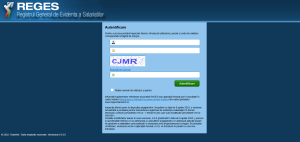Datorită faptului că actualul sistem informatic Reges/Revisal este depășit din punct de vedere tehnologic, în data de 31.03.2025 a fost publicată în Monitorul Oficial HG nr. 295/2025 ce stabilește regulile de operare a noului registru REGES-ONLINE, acesta urmând să înlocuiască aplicația Revisal până pe 30 septembrie 2025, interval în care angajatorii trebuie să migreze în noua platformă. REGES-ONLINE este versiunea digitală, în cloud, a registrului Revisal și este gândit ca un sistem interactiv, accesibil online și care înlocuiește treptat platforma clasică, locală.
Noul sistem permite salariaților să verifice dacă toate condițiile negociate cu angajatorul, cum ar fi salariul sau programul, se regăsesc în contractul individual de muncă. De asemenea, angajații pot opta să primească notificari online atunci când angajatorul transmite noi înregistrări în sistem cu privire la raportul de muncă.

Care sunt beneficiile REGES-ONLINE?
REGES-ONLINE aduce mai multe beneficii pentru angajatori, angajați și autorități:
• Digitalizare completă, fără să mai fie nevoie de alte programe instalate pe calculator. Noul sistem permite gestionarea datelor angajaților direct printr-un portal web securizat;
• Acces online în timp real pentru angajatori, salariați și autorități;
• Interoperabilitate cu alte baze de date naționale;
• Obligația angajatorilor de a înregistra toate elementele contractelor individuale de muncă în timp real;
• Acces direct pentru salariați la datele proprii, cu posibilitatea de verificare în timp real a înregistrării corecte a elementelor contractului individual de muncă (posibilitatea descarcării extrasului din registru pentru dovedirea vechimii în muncă);
• Notificarea în aplicație sau prin e-mail a salariaților la orice înregistrare pe care o transmite angajatorul cu privire la raportul de muncă;
• Eliminarea birocrației și a deplasărilor la Inspectoratul Teritorial de Muncă pentru diverse informații;
• Securitate cibernetică sporită și protecție avansată a datelor.
Ce date vor fi introduse în REGES-ONLINE?
Angajatorii completează și transmit în REGES-ONLINE următoarele date, fără a avea caracter limitativ:
a) datele de identificare ale angajatorului, cum ar fi: denumirea, CUI, CIF, sediul social, numele și prenumele reprezentantului legal;
b) datele de identificare ale salariaților, cum ar fi: numele, prenumele, CNP, numărul de identificare fiscală, cetățenia și țara de proveniență;
c) pentru persoanele cu dizabilități, gradul, tipul de handicap și durata certificatului de încadrare;
d) data încheierii contractului individual de muncă, numărul acestuia și data începerii activității;
e) funcția/ocupația, conform specificației COR;
f) tipul contractului individual de muncă;
g) durata contractului individual de muncă, respectiv nedeterminată/determinată;
h) locul de muncă, respectiv fix sau mobil;
i) durata timpului de muncă și repartizarea acestuia;
j) salariul de bază lunar brut, indemnizațiile, sporurile, precum și alte adaosuri;
k) datele de identificare ale utilizatorului, în cazul contractelor de muncă temporară;
l) data transferului, precum și datele de identificare ale angajatorului la care se face transferul;
m) data la care începe și data la care încetează detașarea, precum și datele de identificare ale angajatorului la care se face detașarea;
n) data la care începe și data la care încetează detașarea transnațională, statul în care urmează să se realizeze detașarea transnațională, denumirea beneficiarului/utilizatorului la care urmează să presteze activitatea salariatul detașat, precum și natura acestei activități;
o) data la care începe și data la care încetează detașarea pe teritoriul unui stat care nu este membru al UE, statul în care urmează să se realizeze detașarea, denumirea beneficiarului/utilizatorului la care urmează să presteze activitatea salariatul detașat, precum și natura acestei activități;
p) perioada, cauzele de suspendare și data încetării suspendării contractului individual de muncă;
q) data și temeiul legal al încetării contractului individual de muncă.
Care sunt termenele de transmitere a datelor în REGES-ONLINE?
Pentru fiecare dintre aceste date, prezenta hotărâre prevede următoarele termene de transmitere în REGES-ONLINE:
• Datele de la litera a) și până la litera k) se transmit cel târziu în ziua anterioară începerii activității pentru fiecare persoană care urmează să se afle într-un raport de muncă cu angajatorul;
• Datele de la litera l) se transmit în termen de 5 zile lucrătoare de la data transferului, respectiv de la data preluării prin transfer;
• Datele de la litera m) se transmit cel târziu în ziua anterioară datei de începere/încetare a detașării salariatului;
• Datele de la literele n) și o) se transmit cel târziu în ziua anterioară datei de începere/încetare a detașării salariatului pe teritoriul altui stat;
• Datele de la litera p) se transmit cel târziu în ziua anterioară datei suspendării/datei încetării suspendării, cu excepția cazurilor de suspendare în baza certificatelor medicale, când transmiterea în REGES-ONLINE se face în termen de 3 zile lucrătoare de la data înregistrării la angajator a certificatului de concediu medical, a absențelor nemotivate, precum și a situațiilor de suspendare în caz de forță majoră, când transmiterea în REGES-ONLINE se face în termen de 3 zile lucrătoare de la data suspendării;
• Datele de la litera q) se transmit cel târziu la data încetării contractului individual de muncă/la data luării la cunoștință a evenimentului ce a determinat, în condițiile legii, încetarea contractului individual de muncă.
Care este procedura de migrare și sancțiunile prevăzute?
Angajatorii vor avea la dispoziție 6 luni de la data de publicare a hotărârii în Monitorul Oficial al României pentru a se înregistra în REGES-ONLINE. Astfel, în acest caz, termenul limită este 30 septembrie 2025. Încălcarea acestei obligații constituie contravenție și se sancționează cu amendă de la 15.000 lei la 20.000 lei.
În termen de 6 luni de la data de publicare a hotărârii în Monitorul Oficial al României, angajatorii au obligația de a completa și de a transmite în REGES-ONLINE toate elementele contractelor individuale de muncă active la data accesări registrului. Și în acest caz, termenul limită este 30 septembrie 2025. Încălcarea acestei obligații constituie contravenție și se sancționează cu amendă de la 5.000 lei la 10.000 lei.
Procedura de acces în vederea completării, transmiterii și interogării datelor în/din REGES-ONLINE urmează să fie stabilită prin ordin al Ministrului Muncii, Familiei, Tineretului și Solidarității Sociale, în termen de 30 de zile de la intrarea în vigoare a Hotărârii de Guvern. După expirarea perioadei de tranziție, Hotărârea Guvernului nr. 905/2017 privind registrul general de evidență a salariaților urmează să fie abrogată.
Obligații suplimentare pentru angajatori
Trecerea la REGES-ONLINE nu înseamnă doar un alt format digital, ci o nouă procedură de raportare ce va implica mai mult timp petrecut cu înregistrarea datelor având în vedere că cea mai majoră modificare rămâne obligația angajatorilor de a raporta în REGES-ONLINE suspendările de contracte individuale de muncă cauzate de concedii medicale. Aceste suspendări se vor raporta indiferent dacă este vorba despre boală obișnuită, accident în afara muncii sau altă cauza legală. În forma clasică a Revisal, angajatorii nu transmit concediile medicale în mod distinct în registru. Nerespectarea acestui termen atrage sancțiuni clare: amenda între 3.000 si 5.000 lei pentru fiecare situație de suspendare a CIM neraportată la timp. Pentru a gestiona eficient această obligație, se recomandă introducerea expresă în regulamentul intern a obligației angajatului de a transmite certificatul medical în termenul legal.
O altă obligație este legată de transmiterea în REGES-ONLINE a informațiilor despre locul de muncă (fix sau mobil), durata timpului de muncă și repartizarea acestuia. Prezenta hotărâre specifică și faptul că angajatorul trebuie să păstreze un dosar personal pentru fiecare salariat, fie în format fizic, fie electronic (în situația în care părțile au optat să utilizeze semnătura electronică avansată/calificată, dosar de personal va fi în format electronic).
Hotărârea prezentă adaugă ca și obligație a angajatorului la încetarea contractului de muncă, pe lângă eliberarea adeverinței privind vechimea și salariul și eliberarea extrasului REGES-ONLINE. La solicitarea scrisă a salariatului sau a unui fost salariat, angajatorului îi revine obligația de a elibera, în cel mult 15 zile lucrătoare de la data solicitări, o adeverință privind activitatea desfășurată de acesta, durata activității, salariul și vechimea, alături de un extras REGES-ONLINE.
Mai este posibilă contractarea serviciului de completare și transmitere a datelor ?
Dreptul și obligația privind completarea și transmiterea datelor în REGES-ONLINE sunt exclusiv ale angajatorului. Completarea și transmiterea datelor, precumși prelucrarea acestora se realizează de către unul sau mai mulți salariați, desemnați prin decizie scrisă de către angajatorii. Angajatorii pot contracta serviciul de completare și transmitere a datelor în REGES-ONLINE și în continuare, prin încheierea de contracte de prestări servicii cu prestatorii. În acest caz, angajatorii nu mai trebuie să notifice Inspectoratul Teritorial de Muncă, informațiile furnizorului de servicii (CUI/CIF, denumire, sediu, reprezentant legal) trebuie înregistrate direct în platformă, în termen de 3 zile lucrătoare de la data încheierii/încetării contractului de prestări servicii. Contractarea serviciului de completare și transmitere a datelor în Registru nu exonerează angajatorul de obligațiile stabilite de prezenta hotărâre.
În noul sistem informatic REGES-ONLINE se va putea verifica de către Inspectoratul Teritorial de Muncă, în timp real, absolut toate datele introduse de către angajatori, astfel că angajatorii vor trebui să acorde importanță mărită acestui aspect pentru a evita riscul de sancțiuni.
Distribuie pe social media




